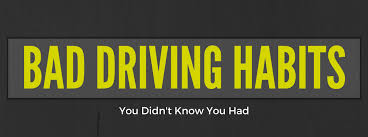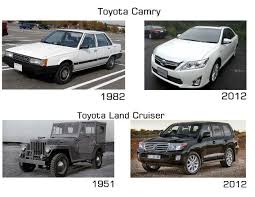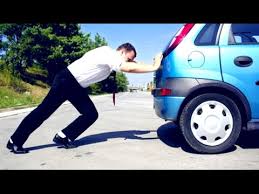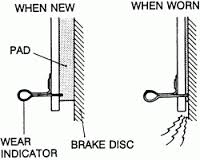Posted on 10/28/2016

Did you know that driving on wet leaves can be dangerous? Read on. Wet or frozen leaves can reduce your cars’ traction, which causes skidding or losing control of the leaves. Often the leaves can cover painted road markings, making it hard to know where the lanes are. Slow down if you are driving on a road covered with leaves, especially when driving around turns. Allow yourself plenty of room to stop in an emergency. Keep a greater distance between you and the car in front of you. Leaves make it difficult to see potholes and bumps in the road. A pile of leaves raked to the side of the road is an inviting place to a child. Children enjoy jumping into the leaf piles or burrowing down into them and hiding. Never drive through a leaf pile. Use caution going around turns and where children are playing. Keep your windshield leaf free to avoid wet leaves getting stuck under the windshield wiper blades. In order to avoid the possibility of a fire hazard from the exhaust system or ... read more
Posted on 10/18/2016

Owning and maintaining a vehicle is an important responsibility, overlooking our important maintenance items can have a very negative impact on your car. -Shifting into Drive or Reverse when not completely stopped: If you have an automatic transmission, shifting into drive or reverse isn’t like switching from 1st gear to 2nd in a manual. If you force your transmission to do things it’s not intended to do, causes damage to your drive shafts and suspension. -Riding the clutch: If you have a manual transmission(stick-shift), sometimes you may keep the clutch engaged even when it’s not time to brake or shift gears. This wreaks the hydraulic system-the pressure plates meet the flywheel. If you ride the clutch it causes the plates to graze the flywheel, wearing down the system in general and setting you up for sudden clutch failure in the future. -Riding the Brakes Downhill: In Indiana we really don’t have the same type of hills like they have in San Francisco, but ... read more
Posted on 10/18/2016

“Should I Repair or Replace my old car?” We just had a customer come asking that same question, so what is the right answer. It’s not an easy answer, but there are a number of questions you should be asking yourself. Part of this answer is in the math, and the other is just taking a look at your personal situation. Should you stick with your tried and true car, or get a new or(new to you) car.? Do the math: How much are you paying in maintenance? Is it just a couple hundred dollars in regular maintenance which is less then a new car payment. Even buying a used car (make sure you aren’t buying one that has the same or more problems), if you still have payments on the one you are driving you will lose the money you’ve put in your existing vehicle. Can you do some of the repairs yourself? Simple things like checking fluids(adding more when levels are low), changing your oil, spark plugs, replacing your air filters with a little research you could do these mi ... read more
Posted on 10/13/2016
.jpg)
My Car is idling rough-what could it be. Does your car feel rough and bouncy when the engine is running? Some common causes – and easy fixes are a loose or broken vacuum hose. It wears easily over time, if not working properly over time it can cause serious engine damage. Clogged filters are another component of rough idling. It’s hard to tell, regular maintenance, is one of your sure fire ways to get this taken care of. The job of an air filer is to clean the air entering the engine and preventing debris from getting to the engine and causing damage. As the capacity to filter air is reduced, the engine performance is altered. Bad spark plugs wires and/or a bad distributor cap are also causes of rough idling. These parts are important to smooth running of your vehicle. The plugs provide the spark that ignites the air and fuel mixture within the cylinders. These are just a few parts that can cause your vehicles rough idling. It’s past as I said to get your v ... read more
Posted on 9/21/2016

Car Trouble Symptom Description Cuts out Temporary, complete loss of power. Engine quits at Irregular intervals. May occur repeatedly or intermittently, Usually under heavy acceleration. Detonation Mild to severe pings, usually worse under acceleration. ... read more
Posted on 9/20/2016

“How to recognize problems using your senses?” “what’s that smell?” Smell Antifreeze or coolant leak Sweet odor, usually accompanied by steam from under the hood Burning oil Thick, heavy odor, sometimes accompanied by smoke from under the hood or exhaust Electri ... read more
Posted on 9/19/2016
.jpg)
When do I get my Oil Changed? That is a common question asked especially with newer models. For most newer makes and models, oil changes are recommended approximately every 6,000-7,500 miles However, if you drive in a dusty area, be sure to change your oil and filter every 3,000-5,000 miles Many vehicles are equipped with computers that alert drivers when it’s time to change their oil Listen to the warnings. For most of us, all we need to do is follow the manufacturer’s recommended maintenance schedule for oil change intervals. Their guidelines are designed to keep your car in good running condition for a long time.
Posted on 9/14/2016
.jpg)
ONSTAR Did you know that vehicles equipped with OnStar have an Automatic Crash Notification System? This System can automatically alert the OnStar Call Center when an air bag deploys during a collision. If emergency assistance is needed, OnStar will contact an emergency who travel alone or with children. If your car has an OnStar-equipped system, it would be wise to teach your children to respond to an OnStar after a crash
Posted on 9/8/2016

BRAKE PADS What is your driving style? What type of driving do you do? The weight of your vehicle, the quality of the brake pads, and the conditions of your brake rotors. If you drive aggressively(tailgate others, hard brake at stoplights, etc.) you will use the brakes more often and wear them out quicker. If you drive in a hilly area or in constant stop and go traffic, you will use the brakes more often and wear them out quicker than normal. We do a free brake inspection, and almost all brake pads come with a built in wear indicator. So, when it makes contact, you will hear a slight screeching or scraping sound. Call us, you don’t have to come in that same day, but don’t wait too long. Running the pads too low can cause damage to your rotors